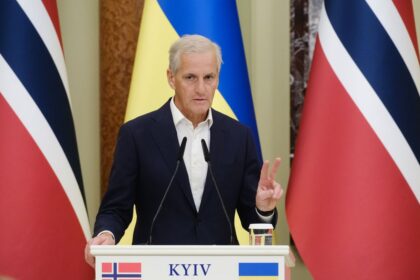**The Folly of Economic Protectionism**
In a recent episode of The Big View podcast, author Philip Coggan draws attention to the parallels between Donald Trump’s tariff policy and Britain’s ill-fated return to the gold standard over a century ago. This economic experiment ended in disaster, leaving many wondering if history is doomed to repeat itself.
**The Gold Standard Debacle**
In 1925, Britain abandoned its earlier decision to leave the gold standard, hoping to stabilize the currency and restore pre-war prosperity. However, this move proved catastrophic, as the country’s manufacturing sector struggled to compete with cheaper imports from countries that had not returned to the gold standard. The policy ultimately led to widespread unemployment, economic stagnation, and a sharp decline in living standards.
**Lessons for Today**
Fast-forward to 2025, and we see striking similarities between Britain’s experience and Trump’s tariff policies. Tariffs have been imposed on various countries, supposedly to protect American industries and create jobs. However, this approach is likely to have the opposite effect, making Americans poorer while failing to bring back lost manufacturing jobs.
**Economic Protectionism: A Lose-Lose Game**
The parallels between these two episodes in economic history are clear. In both cases, governments attempted to shield their economies from global competition through protectionist policies. However, this approach tends to drive up costs for consumers, reduce international trade, and ultimately lead to economic stagnation.
**A Different Approach Needed**
So, what can be learned from this history? It seems that a more nuanced understanding of the complexities of globalization is required. Instead of turning inward and imposing tariffs, countries should focus on creating an environment conducive to innovation, investing in education and infrastructure, and embracing free trade agreements. This approach has been shown to lead to economic growth, job creation, and improved living standards.
Read More @ www.reuters.com












